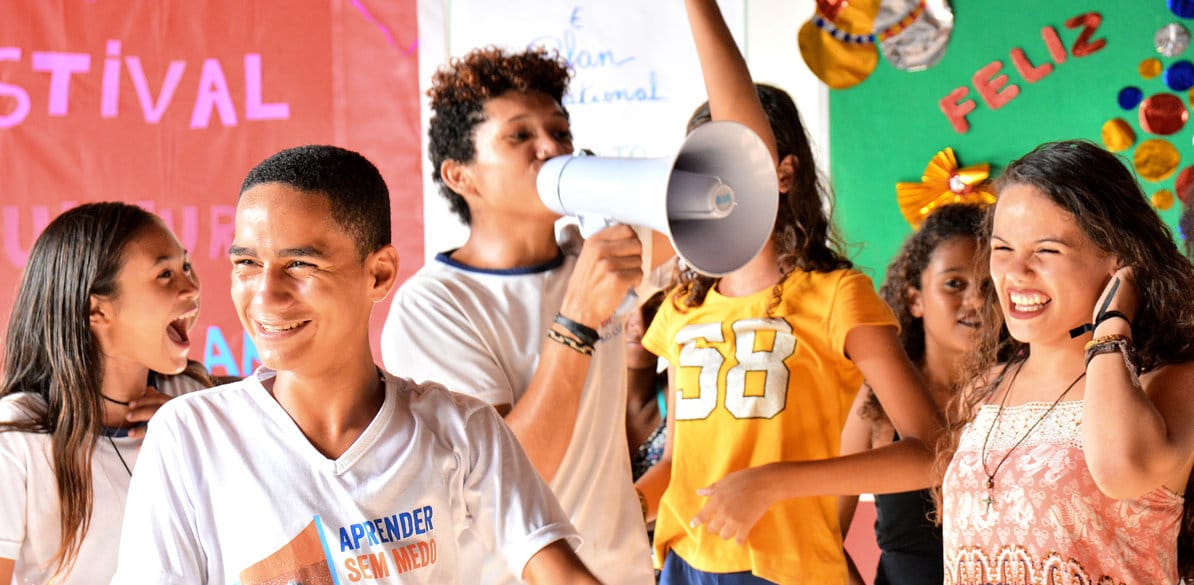50 leaders to fight for women’s rights in Brazil
International Plan Brazil works to empower young women and transform their communities

Completed Project
In Brazil, women, particularly young women, are scarcely present in decision-making centers. In general terms, they have fewer opportunities. In the areas where International Plan Brazil works, women live focused on the family, with very young pregnancies, and supporting families with the low income provided by their low skilled jobs.
The project Escola de Liderança para Meninas launched by this association, seeks to promote the empowerment of 50 young people between 14 and 18 years old who live in a situation of vulnerability. The goal is for them to be able to prevent gender-based violence, be aware of their rights and become leaders of change in their communities. This initiative works on three fronts:
- Develop their skills and their full potential to be autonomous.
- Strengthen their knowledge of their rights so that they can transform their reality and their environment.
- Encourage their citizen participation so that they, themselves, can promote their right to a life free of violence, abuse and inequality.
During the first nine months, the children participate in a training process in different areas ranging from learning to feel safe to studying the legal framework, leadership skills, public policy, etc. With this training, the girls learn to plan strategies for political influence.
The second part of the project brings the minors to the political decision centers, with visits to different institutions to promote dialogue between them.
The goal is that by the end of the training they will have become empowered leaders, able to mobilize and represent the interests of other young people. In addition, their proximity to decision-making centers can make their voices heard and their needs taken into account when proposing policies related to their rights.
In addition to the 50 children trained by this project, another 1,000 will in turn receive training from the children trained at the Escola de Liderança para Meninas. This chain will make more and more women aware of their rights.
